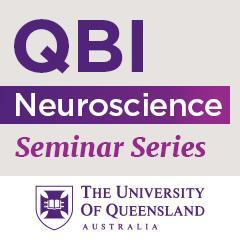Professor Jozef Gecz, University of Adelaide : "Movement in the genetics of neurodevelopmental disabilities"

Speaker:
Professor Jozef Gecz
Chair for the Prevention of Childhood Disability, NHMRC SPRF, The University of Adelaide
Title: "Movement in the genetics of neurodevelopmental disabilities"
Abstract:
Cerebral palsy (CP) is the most common physical disability of children. CP is a heterogeneous group of non-progressive disorders of movement and posture and often co-morbid with intellectual disability (50%), epilepsy (33%), speech impairments (61%), vision impairments (39%) or autism (9%). About 450 children with CP are born in Australia annually. CP prevalence has been slightly dropping in Australia from e.g. 2.2/1000 live births in 1995 to about 1.5/1000 live births in 2012, however this change is small when compared to the high rate of caesarean section deliveries and other preventative measures. Clinically CP has traditionally been considered to be ‘brain injury-related’ and as such not considered for genetic testing. Since 2014 we have pioneered systematic genomic investigations in CP as part of our Australian Collaborative Cerebral Palsy Research Group (n=500) to show, that CP is at least partly a genetic neurodevelopmental disorder. This is further supported by our recent international collaboration on 250 trios (CP child and parents) where we identify mutations in known (e.g. CTNNB1, TUBA1A) or novel (e.g. RHOB) disease genes and point to a disruption of neuritogenesis during development as one of the disease mechanisms leading to CP. The current and prevailing understanding that CP is largely due to acute perinatal asphyxia (=brain injury) is also being challenged. Our (International Cerebral Palsy Genomics Consortium) recent collaborative meta-analysis of 1777 CP trios shows that 30% of individuals have reached a genetic diagnosis of their CP (under ACMG guidelines). More importantly, up to 8% of the cohort have a genetic variant that would prompt a change in their clinical management. It is important to note, that formal clinical diagnosis of CP is not reached until 4 years of age, by which time the window for neuronal plasticity and many opportunities for intervention might be lost. Early genetic diagnosis is a critical component of prevention and precision medicine for CP. Recent success with early genetic diagnosis of children with movement disorders, which may have otherwise been diagnosed with CP, could also explain the drop in CP prevalence, but that is yet to be substantiated. Not that CP diagnoses are ‘lost’, but some CP diagnoses are ‘never made’. Given known and emerging complexity of genetic etiology of CP together with its clinical heterogeneity it is becoming clear that CP is not a unitary disease, but a neurodevelopmental spectrum disorder.
About Neuroscience Seminars
Neuroscience seminars at the QBI play a major role in the advancement of neuroscience in the Asia-Pacific region. The primary goal of these seminars is to promote excellence in neuroscience through the exchange of ideas, establishing new collaborations and augmenting partnerships already in place.
Seminars in the QBI Auditorium on Level 7 are held on Wednesdays at 12-1pm, which are sometimes simulcast on Zoom (with approval from the speaker). We also occassionally hold seminars from international speakers via Zoom. The days and times of these seminars will vary depending on the time zone of the speaker. Please see each seminar listed below for details.



